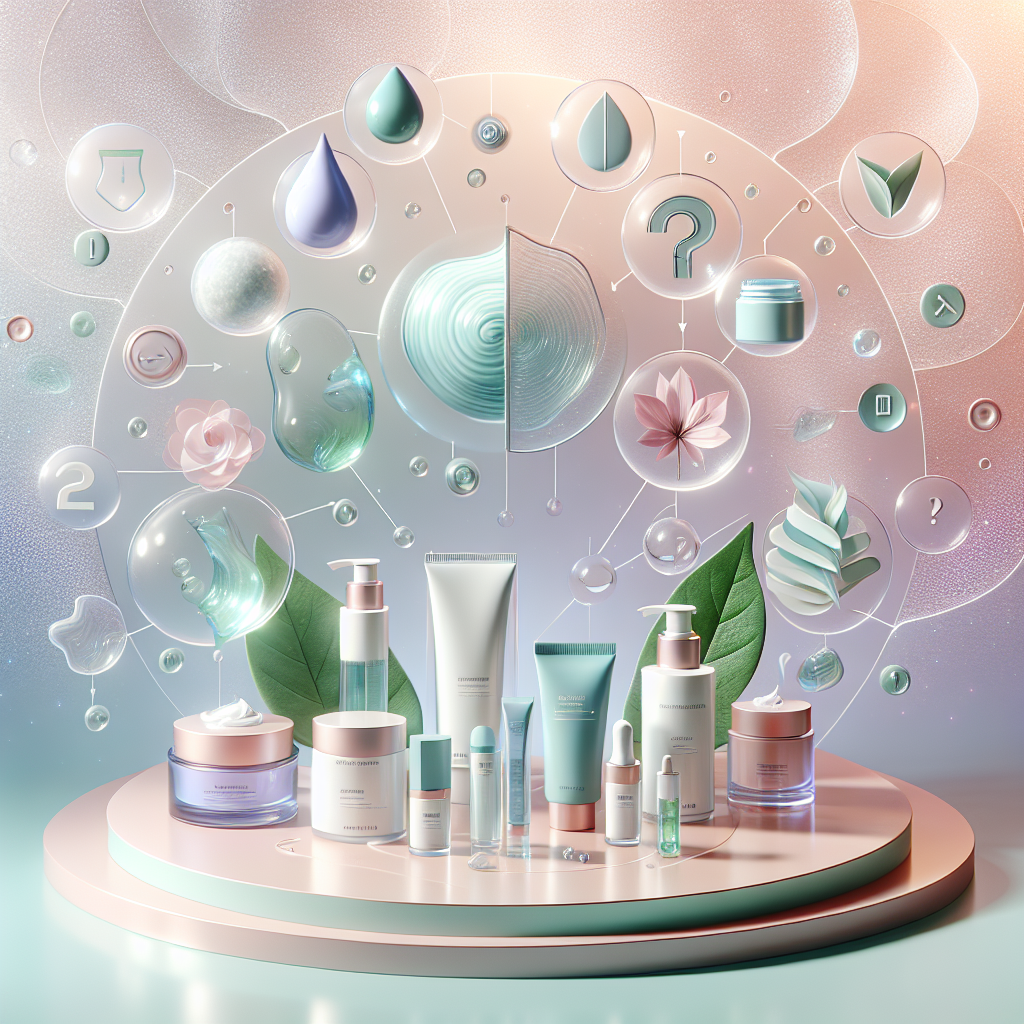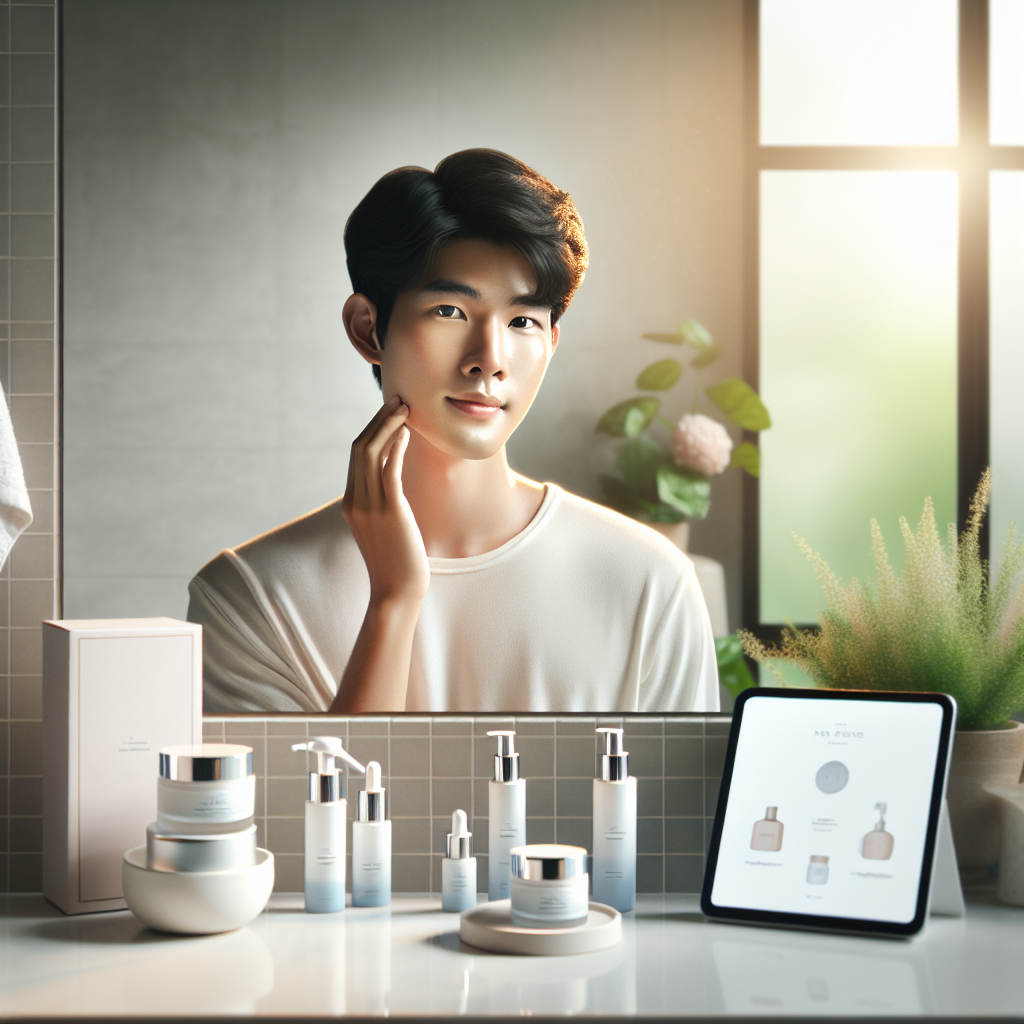How to Cure Acne: The Role of Personalized Skincare
Acne can be a challenging skin condition to manage. With countless products on the market, it can feel overwhelming to find a solution that works. The secret might just lie in personalized skincare. In this blog post, we’ll explore how tailoring your skincare routine to meet your unique needs can help you combat acne effectively.
Table of Contents
1. Introduction
2. Understanding Acne
3. The Importance of Personalized Skincare
4. Key Components of Personalized Skincare
5. Steps to Develop Your Personalized Skincare Routine
6. Conclusion
7. FAQs
Introduction
Acne is more than just a surface-level skin issue; it’s a condition that can affect self-esteem and emotional well-being. While many people seek a one-size-fits-all solution, the key to effectively managing acne lies in understanding your skin’s unique characteristics and needs. Personalized skincare offers a tailored approach to address these specifics. 😊
Understanding Acne
Acne occurs when hair follicles become clogged with oil and dead skin cells, leading to whiteheads, blackheads, or pimples. Factors like hormones, diet, stress, and genetics can exacerbate the condition. Recognizing that acne is multifaceted is crucial to finding the right treatment. 🌿

The Importance of Personalized Skincare
Personalized skincare acknowledges that each individual’s skin is different. What works for one person may not work for another. By tailoring a skincare regimen to your specific skin type, acne triggers, and lifestyle, you can improve your chances of effectively managing acne.

Key Components of Personalized Skincare
To create a successful personalized skincare routine, consider the following components:
1. Skin Type Analysis
Determine whether your skin is oily, dry, combination, or sensitive. This will guide your choice of products and treatments.
2. Identifying Triggers
Track your diet, stress levels, and hormonal cycles to identify possible acne triggers. This knowledge can help you make informed decisions about lifestyle changes and product choices.
3. Product Selection
Choose skincare products that cater specifically to your skin’s needs. Look for active ingredients like salicylic acid, benzoyl peroxide, or retinoids that target acne effectively.
4. Professional Guidance
Consulting a dermatologist can provide valuable insights into your skin condition and help you develop a personalized routine tailored to your needs.
Steps to Develop Your Personalized Skincare Routine
Step 1: Cleanse Gently
Start with a gentle cleanser that suits your skin type. Avoid harsh soaps that can strip the skin of its natural oils and aggravate acne. 🧼
Step 2: Exfoliate Regularly
Exfoliation helps remove dead skin cells and prevent clogged pores. However, avoid over-exfoliating as it can irritate the skin. Aim for once or twice a week, depending on your skin’s sensitivity.
Step 3: Moisturize
Hydration is key, even for acne-prone skin. Opt for a lightweight, non-comedogenic moisturizer that won’t clog pores.
Step 4: Target Treatment
Incorporate targeted treatments like serums or spot treatments containing acne-fighting ingredients. Apply them after cleansing but before moisturizing for maximum effectiveness.
Step 5: Protect with SPF
Sun protection is essential for all skin types. Use a broad-spectrum sunscreen daily to protect your skin from harmful UV rays, which can exacerbate acne and lead to dark spots.
Step 6: Monitor and Adjust
Keep track of your skin’s progress and be ready to adjust your routine as needed. Skincare is an ongoing journey, and what works today might need tweaking tomorrow.
Conclusion
Personalized skincare offers a promising path to managing acne by addressing the unique needs of your skin. By understanding your skin type, identifying triggers, and selecting appropriate products, you can develop a skincare routine that not only treats acne but also enhances your skin’s overall health. Remember, patience and consistency are key! 🌟
FAQs
Q1: Can personalized skincare routines be expensive?
While some products may be costly, a personalized routine can be tailored to fit any budget. Many affordable products offer great results. It’s about finding the right balance and investing in key products that work for you.
Q2: How long does it take to see results from a personalized skincare routine?
Results can vary, but generally, it may take several weeks to a few months to see significant improvements. Consistency in following your routine is crucial for the best outcomes.
Q3: Can diet really affect acne?
Yes, diet can play a role in acne for some individuals. Foods high in sugar and dairy have been linked to breakouts in certain cases. Monitoring your diet and noting any correlations can be beneficial.
Embarking on a personalized skincare journey requires patience and a willingness to adapt. But the rewards—a healthier, clearer complexion—are well worth the effort. Here’s to your skin’s renewed glow and confidence! 🌟
